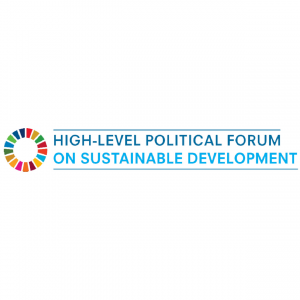The High-level Political Forum on Sustainable Development took place in New-York, from the 17th to 19th of July. This Forum is a place of major significance on the global scale for the following-up of the 2030 Agenda and, on this occasion, 11 countries from America Latina and the Caribbean presented their Sustainable Development Goals on the national scale. As such, political guidance is required to comply with the ODS, in particular for the 1st (No Poverty), 2nd (Zero Hunger), 3rd (Good Health and Well-being) 5th (Gender Equality) 9th (Industry, Innovation and Infrastructure) and 14th (Life Below Water).
Given the context, the CEPEI performed a qualitative analysis on the presentations of the countries of the region in order to have a first outlook of the reports that were presented. The methodology used was based on the tracking of words and concerted expressions around a group of pre-selected variables. This analysis has as purpose to evaluate the capacity of reports to be part of a “review cycle”, in which it is understood that they must be a part of a continuous, over-time process. Thus, it seeks to produce commitment on the part of the states.
Before focusing on the case of Argentina, we need to take into account several fundamental aspects. First, according to World Bank’s updated data (2016), the country has a population of 43,847,430 inhabitants, a GDP of 546,866 (in trillions of USD) and a Gini coefficient of 42,7 (2014), qualifying it as a Upper Middle-Income Country. Regarding the Human Development Index (HDI), and according to the PNUD, Argentina is ranked 45th. From this perspective, we can delve into the synthesis of Voluntary National Reviews, which shows clear-cut indicators and establishes intermediate goals to be achieved on the way to final compliance with the ODS by the year 2030. In that way, it is incorporated as part of a technical and participatory process that was commissioned to the National Council for Coordination of Social Policies.
The challenges that Argentina will have to face, according to the analysis made by CEPEI, are as follow: consolidation of monitoring; reduction of inequalities and gaps; ensuring availability of budgetary resources; legal mechanisms to reach these established goals and articulate, coordinate and integrate work with other powers and sectors. Equally, the 2030 Agenda has a wide territorial range and covers topics that concerns the provinces because of their primary responsibility for education, health, security ,etc. Therefore, the local adaptation of the Agenda in Argentina is of particular importance.
Regarding non-state actors and multisectorial alliances, the report points out that from the executive branch, spaces for participation at different levels of government were created, not only as a way to strengthen people’s rights, but also to promote better policies that have more positive results.
The Executive Branch’s decision to carry out the 2030 Agenda has led the Government to have sectoral strategic goals and plans, so that it facilitates the alignment with ODS goals. In order to finance the implementation of the Agenda, the budget grew by $222,324 million, which represents an increase of 22.1% over the initial budget. The most important social functions were Social Promotion and Assistance (+43.4%), Social Security (+25.5%), Science and Technology (+22.8%) and Water and Sewerage (+22.4%).
The report refers to the three dimensions of Sustainable Development: social, environmental and economic. Argentina, with respect to the principles of Agenda 2030, has a global vision of a development that “leaves no one behind.” At the regional level, it strongly committed itself to addressing the so-called “big data” in order to move towards better monitoring of these issues. On the other hand, at the national level, the priority goals of the 17 ODS were selected according to the objective of eliminating poverty and the priorities of the National Government. From this situation, the government’s comprehensive strategy was elaborated for the fulfillment of its priority goals in connection with the ODS mentioned above. In this sense, in relation to ODS #1, the Universal Allowance per Child (UAC) refers to approximately 3.7 million children and adolescents up to 18 years of age, 9.3% of the country’s population . Additionally, the Pregnancy Allowance reaches 78,600 pregnant women. With regard to ODS #2, it was set as a goal to increase the percentage of registered family farmers by 20% by 2030. On the other hand, for ODS #3 it is indicated that there is a Universal Health Care which guarantees the population access to health services. With respect to the fifth ODS, the final goal is that 90% of reproductive age, sexually active women use a contraceptive method. The National Water Plan (ODS #9) is expected in the medium term to provide full coverage of drinking water and sewage to 75% of urban households. Lastly, for ODS #14, the final goal was to achieve that the percentage of coastal protected areas reach 9% of the total by 2030.
For more information, visit http://cepei.org/gobernanzas/analisis-cepei-de-las-revisiones-nacionales-voluntarias-de-los-paises-alc/

